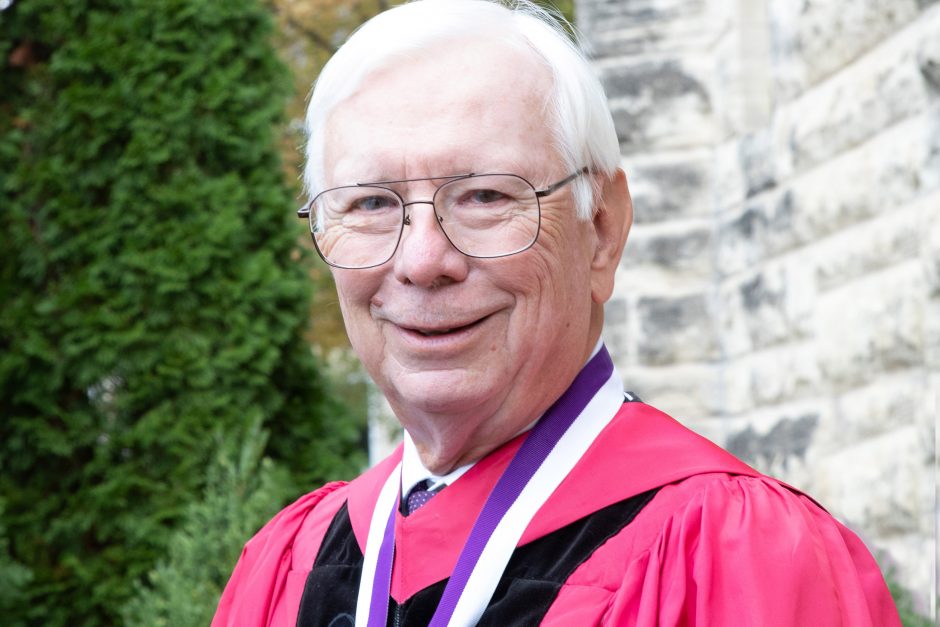Reis ’68 receives Distinguished Achievement Award

During Homecoming Weekend Convocation, Arthur Reis Jr. ’68 was awarded the 2023 Distinguished Achievement Award, which is the highest honor awarded by the Alumni Association and the college.
The Distinguished Achievement Award is based on outstanding generosity or service to the college, outstanding participation in community and civic affairs, or distinguished achievement in one’s field.
Reis came to Cornell from Cicero, Illinois. A train ticket from then-admissions staff member Mary Bowman Seidler ’61 made it possible for him to visit Cornell, and in turn, convince his parents that it was financially possible for him to attend college far from home. During his time on campus, he participated in Chemistry Club, Chemical Society, was a member of Gamma Tau Pi, competed on the track and field team, and was inducted into Phi Beta Kappa. Reis earned a bachelor of arts in Chemistry and Physics in 1968 and went on to receive both his master’s degree and Ph.D. in chemistry at Harvard University.
Early in his career, Reis joined the United States Air Force, serving in Thule, Greenland, and worked as a Space Systems and Orbital Analyst from 1972 to 1974. After completing his service, he went on to work as a solid-state research chemist for Argonne National Laboratory.
He joined the chemistry faculty at Brandeis University in 1979 and served the university in a number of capacities for the next four decades. He was also co-creator and project director of the Volen National Center for Complex Systems, an interdisciplinary research center focused on understanding the brain, intelligence, and advanced computation.
Reis is known as one of the early pioneers in single-crystal neutron diffraction using pulsed sources. He developed the field of rapid DNA analysis and pioneered molecular-based assays for the detection of influenza viruses, MRSA, and sepsis-causing bacteria, including antibiotic-resistant genes. In addition, he developed novel methods to teach science to non-science majors, including a forensic science course incorporating Sherlock Holmes stories. He has lectured nationally on forensic science, presenting on that topic to members of Congress. His writing on these topics is included in more than 100 articles and book chapters, and he holds at least five patents.
Listen to his speech:



